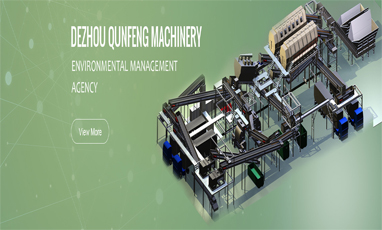The waste management plant will share this article about waste management with you.
The United States alone produces 277 million tons of waste per year. Since this number far exceeds that of any other country in the world, the US government and environmental associations have devised many ways to address this pressing problem.
But what exactly is waste management? In the simplest terms, it can be defined as the collection, transport, and disposal of refuse, sewage, and other wastes.
The waste management process involves the disposal of solid and liquid waste. During the treatment process, it also provides a variety of solutions for recycling items that are not classified as garbage.
So the whole idea comes down to recycling waste as a valuable resource, and given our current environmental climate, this process is critical for all households and businesses.
Waste management or waste disposal is all the activities and actions required from waste generation to final disposal. This includes, inter alia, waste collection, transportation, treatment, and disposal, as well as monitoring and supervision. It also includes a legal and regulatory framework relating to waste management, including guidance on issues such as recycling.
You will find that there are eight main waste management methods, each of which falls into many categories. These groups include source reduction and reuse, animal feeding, recycling, composting, fermentation, landfills, incineration, and land use.
You can start using many techniques in your home, such as reducing and reusing, which can reduce the number of disposable materials used.
Better environment
Perhaps the biggest advantage of managing waste is that it ultimately leads to a better and fresher environment.
The waste sector also contributes to the well-being of people by helping them get rid of the disease. The best part: All of this happens, and the unnecessary should be dealt with in a proper, hygienic way.
Multiple waste treatment units should be placed in tier I and TIER II cities to prepare for the waste treatment process. In the long run, it will also help implement excellent security measures.
To reduce pollution
Disposing of waste in the right way can not only eliminate subsequent waste but also reduce the impact and intensity of harmful greenhouse gases (such as carbon dioxide, carbon monoxide, and methane) that often seep from accumulated waste in landfills.

Managing waste reduces our dependence on landfills, and at the same time significantly reduces many factors that adversely affect the environment.
To save energy
Recycling is one of the biggest aspects of waste management and helps to save energy over time. One of the biggest examples of this advantage can be traced back to the practice of recycling paper.
Safety is a top priority in waste management and is a Shared responsibility starting with waste containers. Properly filled, maintained, and maintained containers are critical to ensuring that our customers and employees are protected from harm. To this end, we would like to share with you some best practices for proper waste disposal to help you maintain a normal and safe waste area for you and our drivers.
These tips provide useful tips for proper waste management, such as reducing odors in containers, keeping waste areas clean, and disposing of large items.
Load the container: When loading the container, make sure that the container cover is fully closed. If your garbage does not fit into the container with the lid completely closed, we will not be able to repair your garage area. Keep in mind that if your garbage volume does change, we can adjust your service by increasing the size of the container or the frequency of collection. Keep in mind that rapid service tuning will enable you to adapt to your growing needs and help you avoid additional costs due to container overflows or garbage overflows in the waste area.
Reduce odors: To reduce odors in waste areas, remember to wrap garbage bags tightly before placing them in containers. This will help reduce the accumulation of bacteria and odors caused by spilled garbage.
Keep clean: Regularly cleaning containers and the waste areas around them will help keep the waste areas clean for easy operation, reduce odors, and minimize insects.
Cleaning the garage or shed: When cleaning the garage or shed, remember that the following items are not within the scope of your normal garbage collection and should not be placed in containers: paint, paint thinners, oil, oil filters, tarpaulins, and pesticides.
In addition, the following items require special treatment and should not be placed in your waste or recycling containers:
Electrical appliances, batteries, chemicals, construction waste, electronics, combustible, fluorescent lamps, hazardous waste, pesticides, liquids, medical waste/needles, tires.